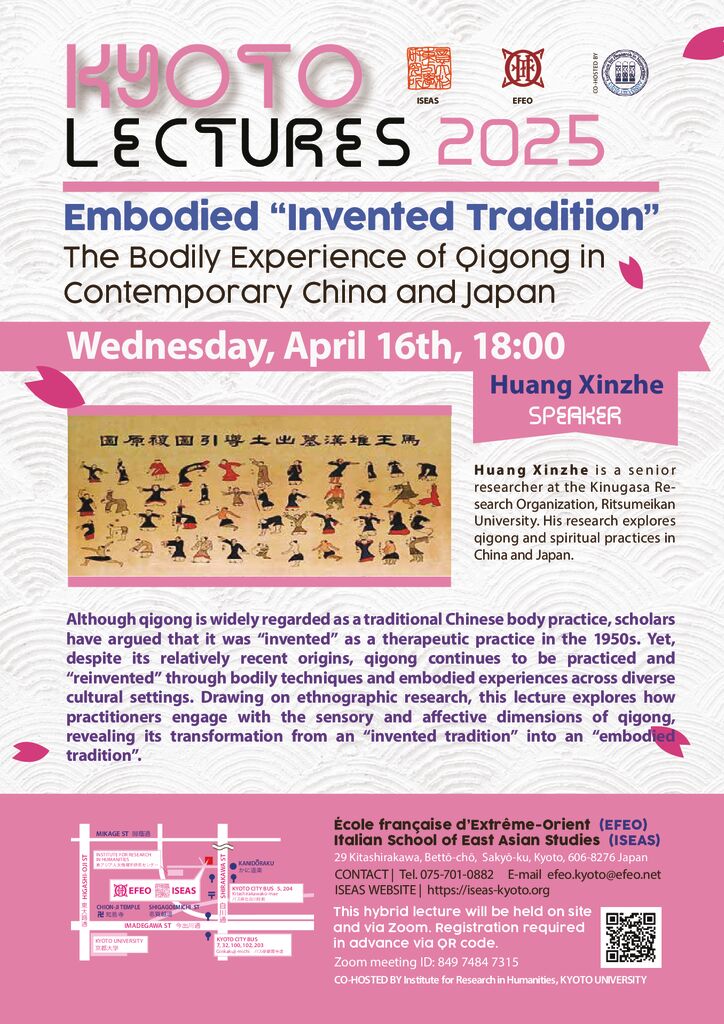Although qigong is widely regarded as a traditional Chinese body practice, scholars have argued that it was “invented” as a therapeutic practice in the 1950s. Yet, despite its relatively recent origins, qigong continues to be practiced and “reinvented” through bodily techniques and embodied experiences across diverse cultural settings. Drawing on ethnographic research, this lecture explores how practitioners engage with the sensory and affective dimensions of qigong, revealing its transformation from an “invented tradition” into an “embodied tradition”.
Huang Xinzhe is a senior researcher at the Kinugasa Research Organization, Ritsumeikan University. His research explores qigong and spiritual practices in China and Japan. He recently published a book in Japanese (The Anthropology of Qi: Embodied experience in Qigong Practices, Sekai Shisōsha 2025) based on his PhD dissertation.
This hybrid lecture will be held on site (registration required in advance from here) and via Zoom.
Zoom Link: https://us02web.zoom.us/j/84974847315
Meeting ID: 849 7484 7315
